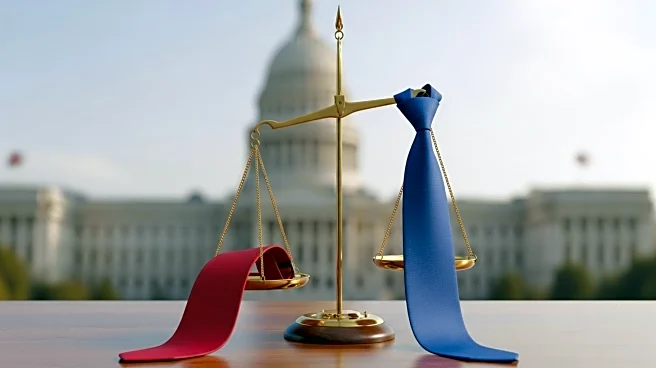What's Happening?
Congressional leaders are currently engaged in a blame game as the possibility of a government shutdown looms. Despite the urgency of the situation, no clear path has emerged for how funding might be approved to prevent the shutdown. The lack of consensus among lawmakers is contributing to the uncertainty, with each side pointing fingers at the other for the impasse. The situation is critical as the deadline for funding approaches, and the consequences of a shutdown could be significant, affecting various government operations and services.
Why It's Important?
A government shutdown would have widespread implications for the U.S. economy and public services. Essential government functions could be disrupted, affecting millions of Americans who rely on federal services. The shutdown could also have political ramifications, influencing public opinion and potentially impacting upcoming elections. Stakeholders such as federal employees, contractors, and beneficiaries of government programs stand to be directly affected. The inability to reach a funding agreement highlights the deep political divisions within Congress, which could have long-term effects on governance and policy-making.
What's Next?
If Congress fails to approve funding, the government will enter a shutdown, leading to the suspension of non-essential services and furloughs for federal employees. Political leaders may face increased pressure from constituents and interest groups to resolve the impasse. The situation could lead to intensified negotiations and potential compromises to avert the shutdown. Observers will be watching closely to see if any last-minute deals can be struck to keep the government running.
Beyond the Headlines
The ongoing blame game among congressional leaders underscores the challenges of bipartisan cooperation in the current political climate. The inability to reach consensus on funding reflects broader issues of polarization and gridlock in Washington. This situation may prompt discussions about the need for reform in legislative processes to prevent future shutdowns and ensure more effective governance.










